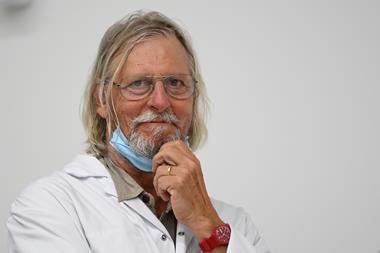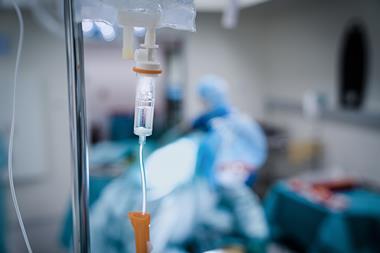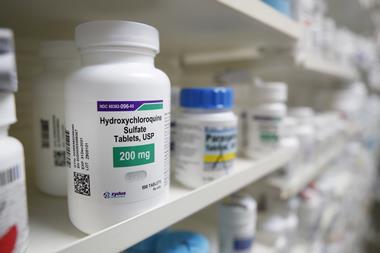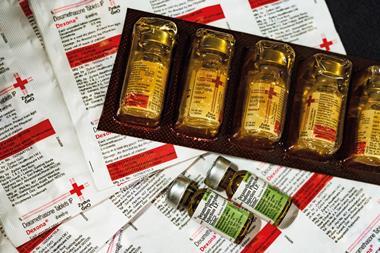Claims that 60-year-old drug dexamethasone dramatically lowers fatality rate of seriously ill Covid-19 patients await peer review
The six decades-old corticosteroid dexamethasone is being hailed by UK prime minister Boris Johnson and scientists alike as the biggest breakthrough yet in the fight against Covid-19. The claim is based on press released preliminary results from a study begun in March that enrolled over 11,500 coronavirus patients treated at 175 hospitals in the UK. However, the trial results have yet to be released leading some to urge caution when interpreting them.
The early results, which were announced via press release on 16 June, are ‘quite remarkable’, said Peter Horby, one of the chief investigators on the trial who is an infectious diseases expert at the University of Oxford, which ran the trial. In ventilated patients with Covid-19, 10 days of treatment with dexamethasone reduced the risk of death by about 35%, when compared to patients who received standard care, he revealed at a Downing Street briefing.
Among hospitalised Covid-19 patients who required oxygen, the anti-inflammatory drug lowered the fatality rate by about 20%, Horby added. However, the drug appeared to have no effect on Covid-19 patients who did not require oxygen. Overall, these preliminary findings indicate that dexamethasone provides a mortality benefit for approximately 75% of hospitalised patients with the novel coronavirus, he said. What this means in real terms is that for every eight patients that go on a ventilator one life would be saved by the drug – or one in 25 for patients on oxygen alone.
Dexamethasone is very widely available and extremely cheap. The total cost of treating a Covid-19 patient with dexamethasone would only be about £5, according to Hornby.
These preliminary results are from the Recovery trial, which has been testing the effectiveness of several existing drugs to treat Covid-19, including dexamethasone and the antimalarial hydroxychloroquine.
Recruitment to the dexamethasone arm of the trial was halted on 8 June because the steering committee concluded that enough patients had been enrolled to establish whether or not the drug had a meaningful benefit. Earlier in the month, organisers stopped enrolling participants to the hydroxychloroquine arm of the study after concluding that the medicine had no benefit for hospitalised Covid-19 patients.
When it came to the preliminary dexamethasone results, the UK’s health ministry acted quickly, announcing on 16 June that dexamethasone was immediately approved to treat all UK hospitalised Covid-19 patients requiring oxygen, including those on ventilators. The UK government has also taken action to secure supplies of dexamethasone for the country, stockpiling 200,000 courses of the drug.
Ayfer Ali, an assistant professor at the University of Warwick in the UK who specialises in drug repurposing, called these preliminary results ‘extremely encouraging’. However, she urged caution interpreting them. ‘Now we have to wait for the full results to be peer reviewed and remember that it is not a cure for all, just one more tool,’ Ali said.
The former chief of the US Food and Drug Administration, Scott Gottlieb, expressed similar sentiments. ‘We are going to need to see the underlying data and analyse it more closely, but this is strong treatment effect coming out of a well-designed study,’ he told CNBC’s Squawk Box. Gottlieb, who is currently a partner at the US-based venture capital firm New Enterprise Associates and a member of Pfizer’s board of directors, noted that some of the early evidence where steroids were used in China to fight Covid-19 were unsuccessful. Therefore, he said, the use of corticosteroids was not recommended in China to treat Covid-19 and are not recommended by the US Centers for Disease Control and Prevention either.
‘This is an important finding, it is going to change dogma,’ Gottlieb said. ‘I think it needs to be replicated and we need to see the underlying data, but it is going to probably have an immediate impact in what doctors are doing in the ICU setting,’ he added.

















2 readers' comments